Early Help and CAF
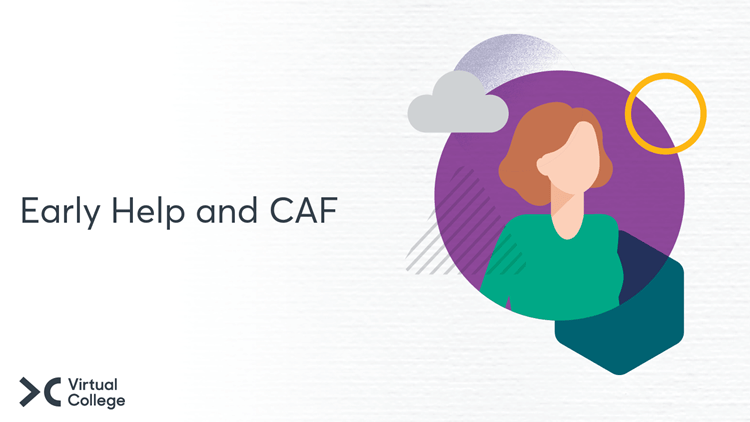
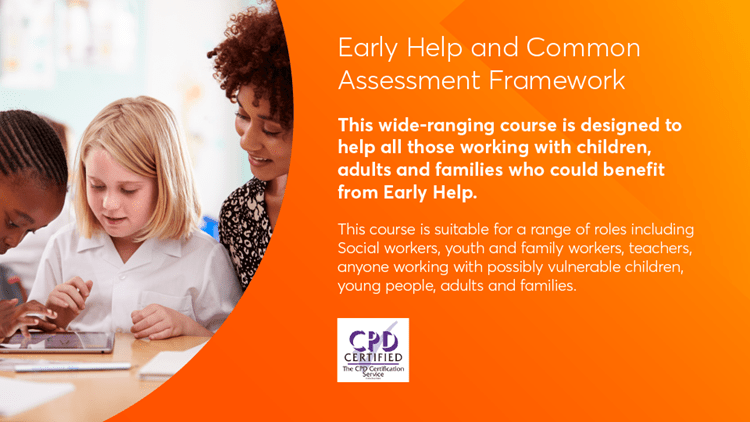
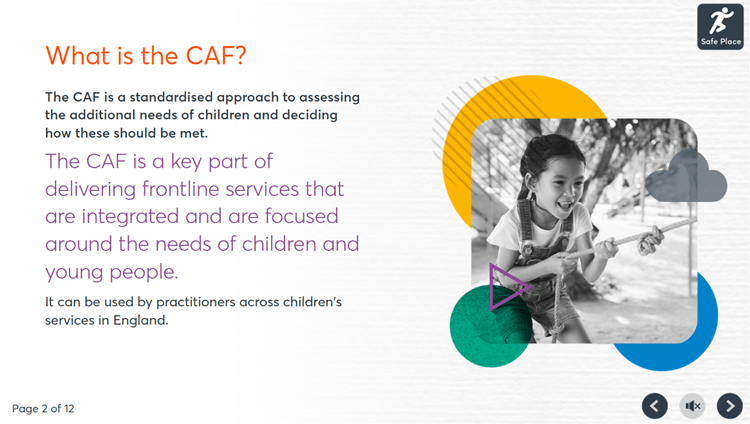
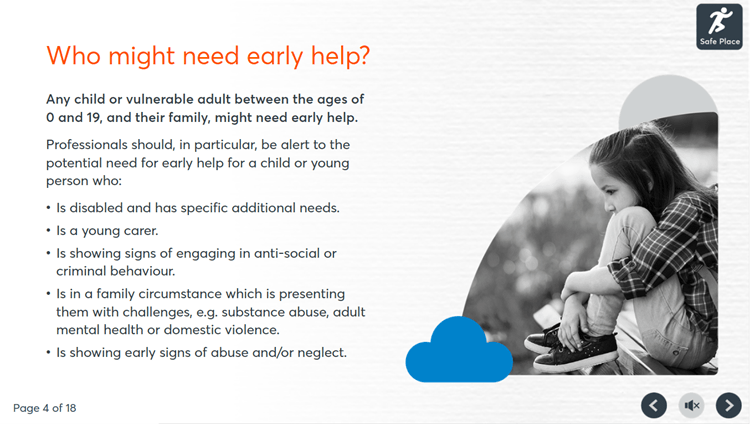




Course Overview
Format
- Intermediate
- 2-3 Study Hours
- Online Study
- Self-Printed Certificate
Accreditation
- 4 CPD Points
- CPD Certified
Course description
The course includes challenges to test the learner’s ongoing knowledge, videos and interactivity to retain interest, examples of early help in schools and colleges, downloads of relevant reading and reports including the Victoria Climbié inquiry, and full details about using the CAF form.
Early help or early intervention involves supporting families when a problem first occurs and can be utilised at any point in a child or young persons life.
Early help can have massively positive impacts on a childs future development and is therefore crucial that anyone working with children, young people or their families understands the importance of early help.
This wide-ranging CAF safeguarding course is designed to help all those working with children, adults and families who could benefit from Early Help.
It covers information sharing and its ramifications, the definition of early help and how to access it, and is suitable for social workers, youth and family workers, teachers, and anyone working with possibly vulnerable children, young people, adults and families.
Topics covered in this CAT training course include:
- The definition and importance of information sharing, when it is necessary and appropriate
- Types of information
- Confidentiality, information security and GDPR
- What can be achieved by information sharing
- The difference between sharing information about children and about adults and the specific needs of children
- The definition of ‘early help’ dentifying who might need it, and what assessment involves
- When a how a child, young person, adult or family might be vulnerable
- The Toxic Trio
- Definition, background and purpose of the Common Assessment Framework (CAF)
- How to use the CAF in practice, including the CAF form
- Legislation covering all the above
- Numbers and statistics as relevant
This CAF online training course includes challenges to test the learner’s ongoing knowledge, videos and interactivity to retain interest, examples of early help in schools and colleges, downloads of relevant reading and reports including the Victoria Climbieé inquiry, and full details about using the CAF form.
You will learn
- Why information sharing is important; what can be shared, what should be shared, and how to do this correctly
- The legal framework of information sharing, including consent and agreements
- Recognise the principles and rules, such as the Caldicott Principles
- Understand what is meant by ‘early help’, who might need early help, what type of help is available, and who provides it
- Know who to contact if a child or young person causes concern
- Recognise the range of vulnerabilities experienced by children, young people, adults and families, explain the factors making people vulnerable, their implications and their risks
- Understand and describe the professional responses to people who are vulnerable
- Understand the Common Assessment Framework and recognise the areas it covers, and how it is used in practice
Who is it for?
Roles including:
- Teachers
- Teaching assistant
- Social Workers
- Council Workers
- Youth and Family Workers
- Anyone working with possibly vulnerable children, young people, adults and families
Legislation
Legislation covered in this course includes:
The Care Act 2014
How the online courses work
-
Find a course
To begin searching for your online training you can click on the course category section on our website and browse through all of our training categories.
Alternatively if you already know the title of the training you’re looking for you can use the search bar located in the centre of the homepage and go directly to the course you want.
-
Buy the course
When buying one of our courses, you will need to enter a valid email address which will be used to create your account with our Learning Management System – Enable – where you will take the training. We will also send your purchase receipt to this email address, and any additional courses purchased in future using the same email address will be added to your system account.
Once you have purchased a course, you will be able to send this course to other people using your system account with Enable by entering the new learner’s email address so that they may access the training and set up their own system account with our Learning Management System.
If you are not 100% satisfied with your course then we offer a 30-day, no hassle money-back guarantee. To request a refund, you should email our learner support team with your receipt stating why you would like to be reimbursed. You, or your learners, must not have completed the training in order to make a valid refund claim. Any claim made after the training has been completed will be invalidated.
-
Take the course
This online course consists of a series of pages in which an instructor will talk learners through the lesson material. Pages may include supporting pictures, graphs, animation or extra sounds to help with the learning where appropriate. Some lessons will include challenges/quizzes to help learners stay engaged and interested in the material. Lessons can be taken in any order and each lesson may be paused and resumed at any stage.
The course is self-paced so learners decide how fast or slow the training goes. There is no deadline for completion but some of our courses have a test at the end to check that learners have understood the material. If the course has a test at the end then learners are required to achieve a 75% pass mark to successfully complete the course. Once learners have passed the test they are awarded a certificate, which can either be downloaded digitally or sent as a physical copy if this option was chosen when purchasing the course.
-
Your Certificate
Upon completion of any of our courses, learners will be able to download a digital certificate from Virtual College and will include the accrediting bodies logo where applicable.
If you have bought the posted certificate option (available on select courses), a high quality, seal embossed, certificate will be sent out at the beginning of the following working week.




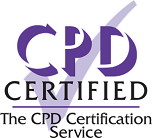


/e-safety-.jpg?mw=320&hash=A9FCF6B70F32AD3EA74633373FF0213B000F75FF)











